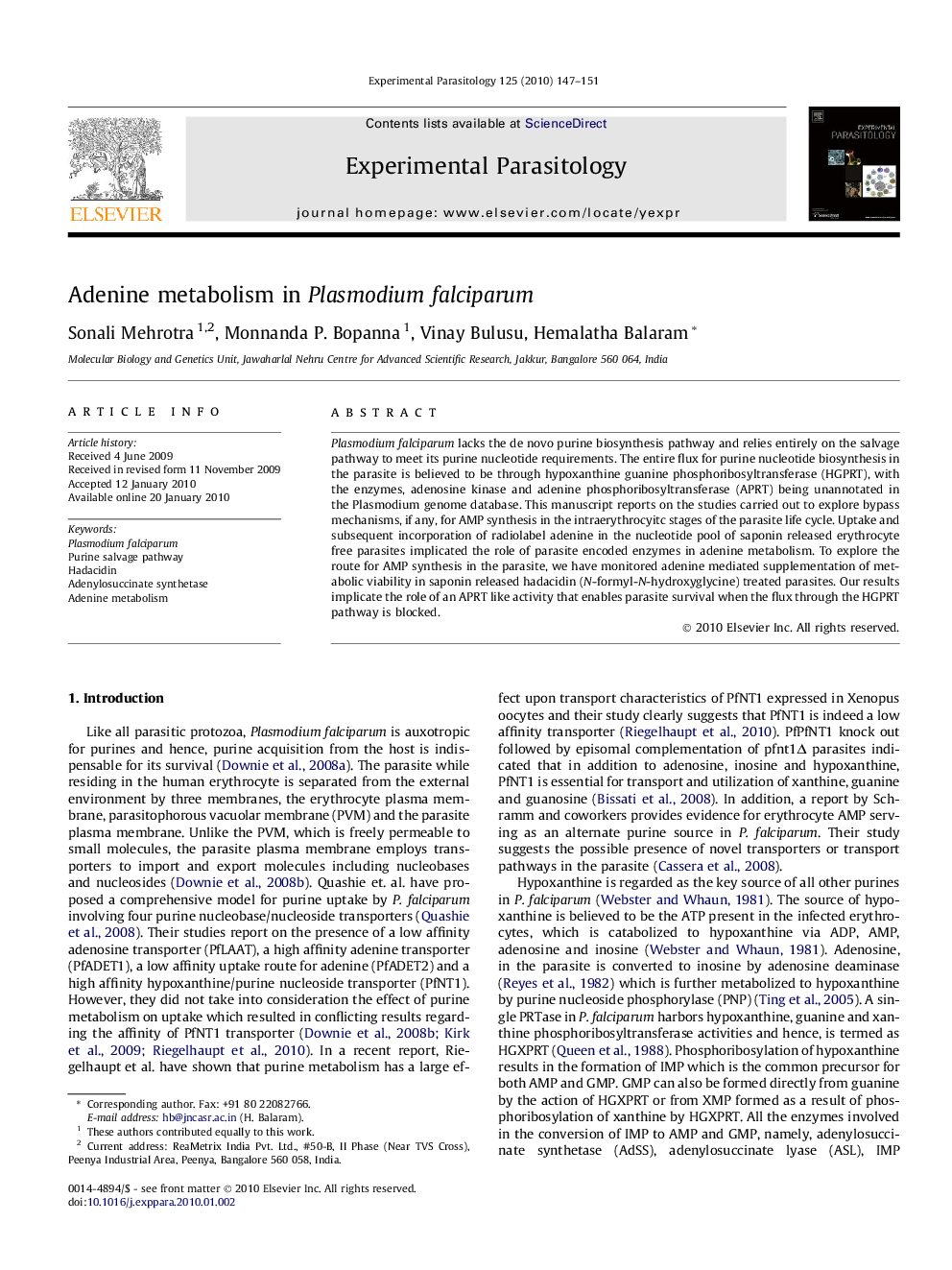| Article ID | Journal | Published Year | Pages | File Type |
|---|---|---|---|---|
| 4371381 | Experimental Parasitology | 2010 | 5 Pages |
Plasmodium falciparum lacks the de novo purine biosynthesis pathway and relies entirely on the salvage pathway to meet its purine nucleotide requirements. The entire flux for purine nucleotide biosynthesis in the parasite is believed to be through hypoxanthine guanine phosphoribosyltransferase (HGPRT), with the enzymes, adenosine kinase and adenine phosphoribosyltransferase (APRT) being unannotated in the Plasmodium genome database. This manuscript reports on the studies carried out to explore bypass mechanisms, if any, for AMP synthesis in the intraerythrocyitc stages of the parasite life cycle. Uptake and subsequent incorporation of radiolabel adenine in the nucleotide pool of saponin released erythrocyte free parasites implicated the role of parasite encoded enzymes in adenine metabolism. To explore the route for AMP synthesis in the parasite, we have monitored adenine mediated supplementation of metabolic viability in saponin released hadacidin (N-formyl-N-hydroxyglycine) treated parasites. Our results implicate the role of an APRT like activity that enables parasite survival when the flux through the HGPRT pathway is blocked.
